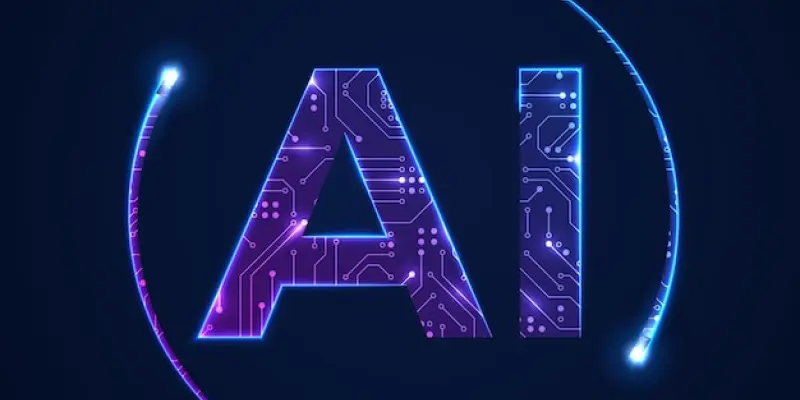An era of workplace transformation unfolds as AI agents gain footing alongside human coworkers, paralleling the monumental changes of past industrial revolutions. Detailed in Microsoft’s latest Work Trend Index report, the infusion of intelligent automation into daily tasks heralds significant shifts in operational strategies. As businesses seek scalable solutions in the face of growing demands, AI stands poised to fill the void by reengineering workflows and augmenting productivity. This pivotal moment sees an overwhelming majority of business leaders acknowledging the need for novel tactics to remain competitive, with nearly half of enterprises already harnessing AI for comprehensive automation in sectors like customer service, marketing, and product development.
The Emergence of the “Agent Boss”
Advancing Automation in Business Operations
The concept of the “agent boss” emerges as a novel role, where employees oversee AI agents to streamline processes and elevate efficiency. This paradigm shift is not merely speculative; tech titans such as OpenAI and Anthropic anticipate that AI will soon transform coding tasks. As a result, more businesses are turning to these sophisticated algorithms to handle routine, labor-intensive functions traditionally performed by humans. This unprecedented reliance on automation reflects broader industry trends aimed at squeezing out inefficiencies and ensuring cost-effectiveness. However, it is important to note that this technology-driven push toward automation is not without its challenges. While some hail AI as a means to amplify human productivity, others caution that its pervasive influence might prompt significant disruptions, particularly concerning job security.
Implications for Workforce Evolution
The transition is not without consequences for the workforce, as underscored by one-third of leaders considering potential job cuts in favor of the technological shift. Despite these concerns, the integration of AI unveils fresh opportunities, notably the emergence of roles dedicated to managing and optimizing AI-driven processes. Leaders from Meta and Google emphasize the need for employees to remain agile, adapting their skills to work effectively alongside AI counterparts. As AI assumes routine tasks, human workers must pivot their focus toward more strategic and creative endeavors, fostering a collaborative rather than competitive relationship with technology. This evolving dynamic underscores not only the inevitability of AI participation in the workplace but also the necessity for continued professional growth and adaptability in an era of rapid technological advancement.
Strategic Adaptation to AI Integration
Balancing Human and AI Capabilities
While AI continues to permeate various job sectors, its role remains that of an adjunct, complementing human ingenuity rather than replacing it. Businesses are tasked with strategically integrating AI to support human capabilities and match the unique skills that technology cannot replicate. This balance is crucial to optimizing organizational outcomes and ensuring the sustainability of AI as a transformative tool. A thoughtful approach to harnessing both AI and human expertise fosters an environment where innovation thrives, and organizational growth is underpinned by a symbiotic relationship between technology and personnel. As the narrative of AI evolves, so too must the methodologies employed to deploy these tools judiciously within the workplace.
Future Outlook and Workforce Implications
The ongoing evolution in workforce dynamics necessitates forward-thinking policies and training programs aimed at helping workers navigate this era of change. Companies that invest in upskilling initiatives and cultivate a culture of resilience stand to gain a competitive edge, effectively future-proofing their operations against inevitable shifts in the labor market. As the workforce landscape continues to transform, the importance of empathetic leadership and strategic foresight becomes apparent. Addressing employee concerns and fostering an inclusive environment where both human ingenuity and technological prowess can flourish are key to achieving a harmonious and prosperous future.
Navigating the New Workplace Frontier
We’re witnessing a transformative era in the workplace as AI agents steadily integrate into environments shared with human coworkers, reminiscent of the sweeping changes seen during past industrial revolutions. According to Microsoft’s recent Work Trend Index report, the integration of intelligent automation into everyday tasks marks a significant shift in operational strategies. As businesses strive to meet rising demands with scalable solutions, AI emerges as a key player, revolutionizing workflows and enhancing productivity. This critical juncture reveals that a substantial majority of business leaders recognize the urgent need for new approaches to retain competitiveness. Nearly half of enterprises are already leveraging AI for full-blown automation in areas such as customer service, marketing, and product development. This trend underscores that AI is not just a tool, but a partner in creating a more efficient workplace, poised to reshape industries by accommodating modern challenges with innovative solutions.

